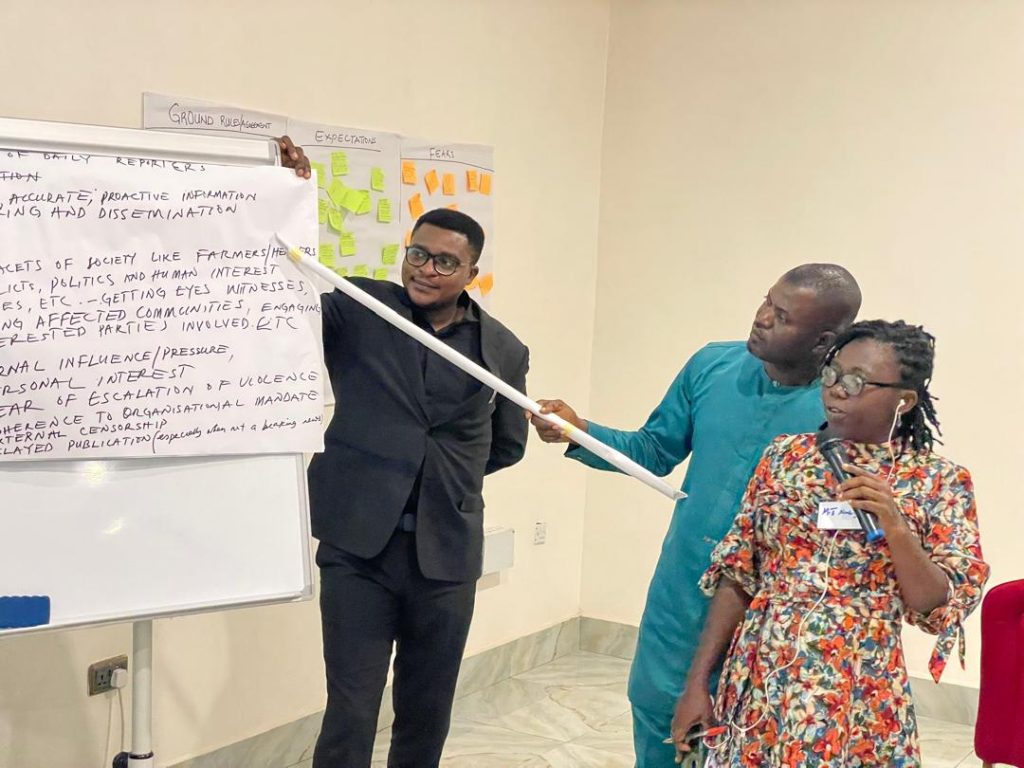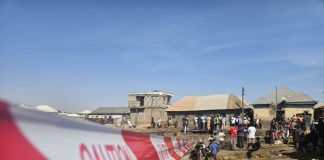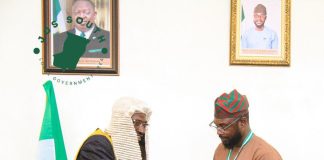In an effort to develop greater understanding and collaboration among different religious communities in Plateau state and beyond, the Joint Initiative for Strategic Religious Action (JISRA) recently engaged journalists in a critical dialogue about the media’s role in interfaith relations and peace building.
The 3-day program held at Crispan Hotels in Jos, Plateau State intended to equip journalists with the tools and insights necessary in disseminating conflict-sensitive reports.
Recognizing the significant influence of the media in shaping public perceptions and narratives, JISRA’s initiative focuses on promoting principles of fairness, accuracy, and empathy in reporting. By doing so, JISRA seeks to mitigate the potential for media to inadvertently exacerbate tensions and instead, promote a culture of mutual respect and cooperation.
Mr. Jude Likita, the Country Coordinator for the JISRA program in Nigeria, emphasized the critical role of the media in either triggering violence or fostering peace. “We want to see or have an opportunity where media practitioners report most of their cases about religion in a very conflict-sensitive manner,” he stated.

Likita highlighted that in the Nigerian context, religion is often intertwined with conflicts, making sensitive reporting essential. He added that The workshop is part of a five-year program running from 2021 to 2025, aims to promote the message of freedom of religion and belief, ensuring that everyone can practice their faith peacefully.
He noted that the program involves seven local partners and three international organizations, including Mensen Met Een Missie, The Catholic Agency for Overseas (CAFOD), Tearfund, and Search for Common Ground, all of whom are dedicated to peacebuilding efforts in Nigeria.

During the program, Mr. Reuben Emmanuel, Tearfund Advocacy Officer and leader of the JISRA Lobby Advocacy and Communications Working Group, also stressed the media’s critical role in promoting a just and peaceful society that respects freedom of religion and belief, stating that “The media practitioners are gatekeepers of information and knowledge. We believe that through conflict-sensitive reporting, a lot of conflict will be de-escalated, and positive changes in attitude and behavior will manifest among the citizens of Plateau State.”

Emmanuel highlighted the media’s power to shape society, hold stakeholders accountable, and promote understanding through the wide dissemination of information. He emphasized the importance of developing new strategies to address the underlying causes of conflict, underscoring the media’s role in creating a more peaceful and equitable society.

Mrs. Nankling Luka Maguet, Peace building Project Officer of RURCON, also spoke on the importance of Freedom of Religion or Belief (FORB) and women’s rights to JISRA. She said “To JISRA, women’s rights are the freedoms, liberties, privileges, and opportunities that women have, especially to be treated (economically, politically, socially, and religiously) equal to and have the same rights as men,” she explained.
Maguet emphasized that JISRA focuses on women’s rights and gender equality where they intersect with religion. “We aim to secure equality for women and counter gender discrimination within religious communities and institutions by addressing harmful norms, policies, practices, and behavioral patterns,” she added.

Mr. Promise Salau, speaking on conflict reporting and how journalists can promote peace rather than escalate conflict, underscored the importance of conflict-sensitive reporting. “Essentially, conflict-sensitive reporting focuses a lot more on reducing the possibilities for triggering conflicts from the reports that are dished out to the general public,” he explained.
Salau highlighted the necessity of analyzing different perspectives, being sensitive to language, and carefully framing reports. “The angles we are coming from can also escalate violence within those communities,” he warned.
He also stressed the need for media houses to prioritize national interest over financial gain, emphasizing that “the common interest and the national interest become important in the way we report our news.”
Salau concluded with a call to journalists to remain dedicated to being sensitive about conflicts and the way they report, particularly on conflict-related issues.









